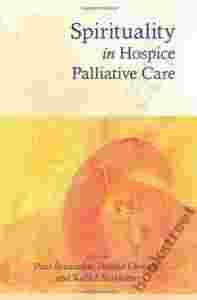|
Explores the end-of-life spiritual needs of
people who do not identify with traditional
religions.
This groundbreaking book addresses
the spiritual aspect of hospice care for those who do
not fit easily within traditional religious beliefs and
categories. A companion volume to Religious
Understandings of a Good Death in Hospice
Palliative Care, this work also advocates
for renewed attention to the spiritual, the often
overlooked element of hospice care. Drawing on data from
clinical case studies, new sociological research, and
the perspectives of agnostics, atheists, those who
emphasize the spiritual rather than institutional
dimensions of a traditional religion, and the rapidly
growing cohort of those who describe themselves as
spiritual-but-not-religious, the contributors to this
volume interpret the shift from predominantly
Christian-based pastoral services to a new approach to
“the spiritual” shaped by the increasing diversity of
Western societies and new understandings of the nature
of secular society. How do we use it in a way that
enables caregivers to assist patients? Clinicians and
policy makers will appreciate the book’s practical
recommendations regarding staff roles, training, and
resource allocation. General readers will be moved by
the persuasive call for greater religious and spiritual
literacy at every level of health care in order to
respond to the full spectrum of human needs in life and
in death.
“Spirituality in Hospice Palliative
Care provides a great deal of information about the
topic from the perspectives of several disciplines, most
strongly nursing and pastoral care/chaplaincy within
Western culture. It also provides a useful historical
synthesis of the hospice movement and of nursing’s role
in hospice palliative care.” — Carla Sofka, coeditor of
Dying, Death, and Grief in an Online Universe: For
Counselors and Educators
“This book provides
a valuable resource for nurses,
physicians, chaplains, hospice workers, and academics to
better understand and provide culturally competent care
at the end of life.” — Swasti Bhattacharyya, author of
Magical Progeny, Modern Technology: A Hindu
Bioethics of Assisted Reproductive Technology
|
|

